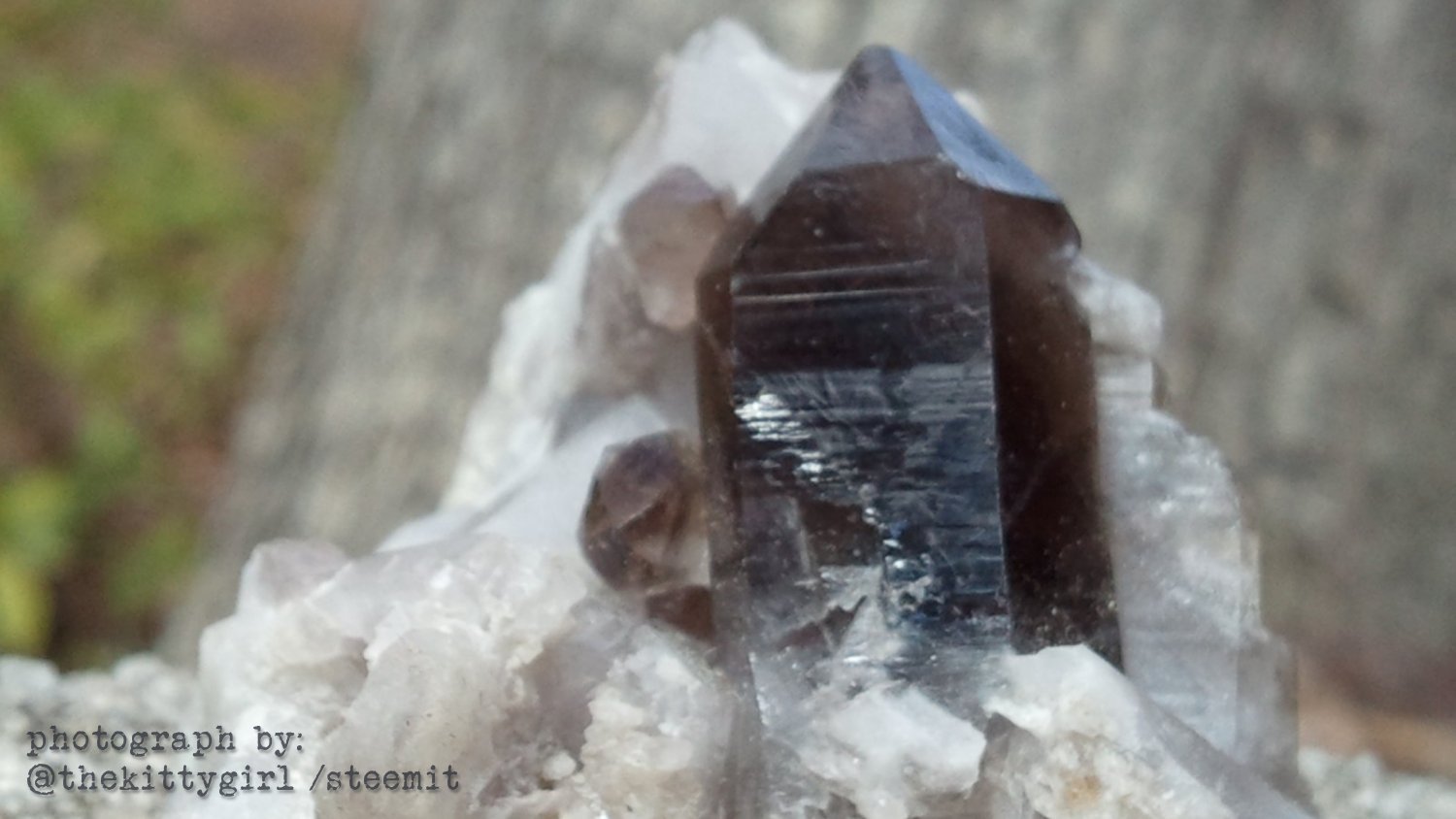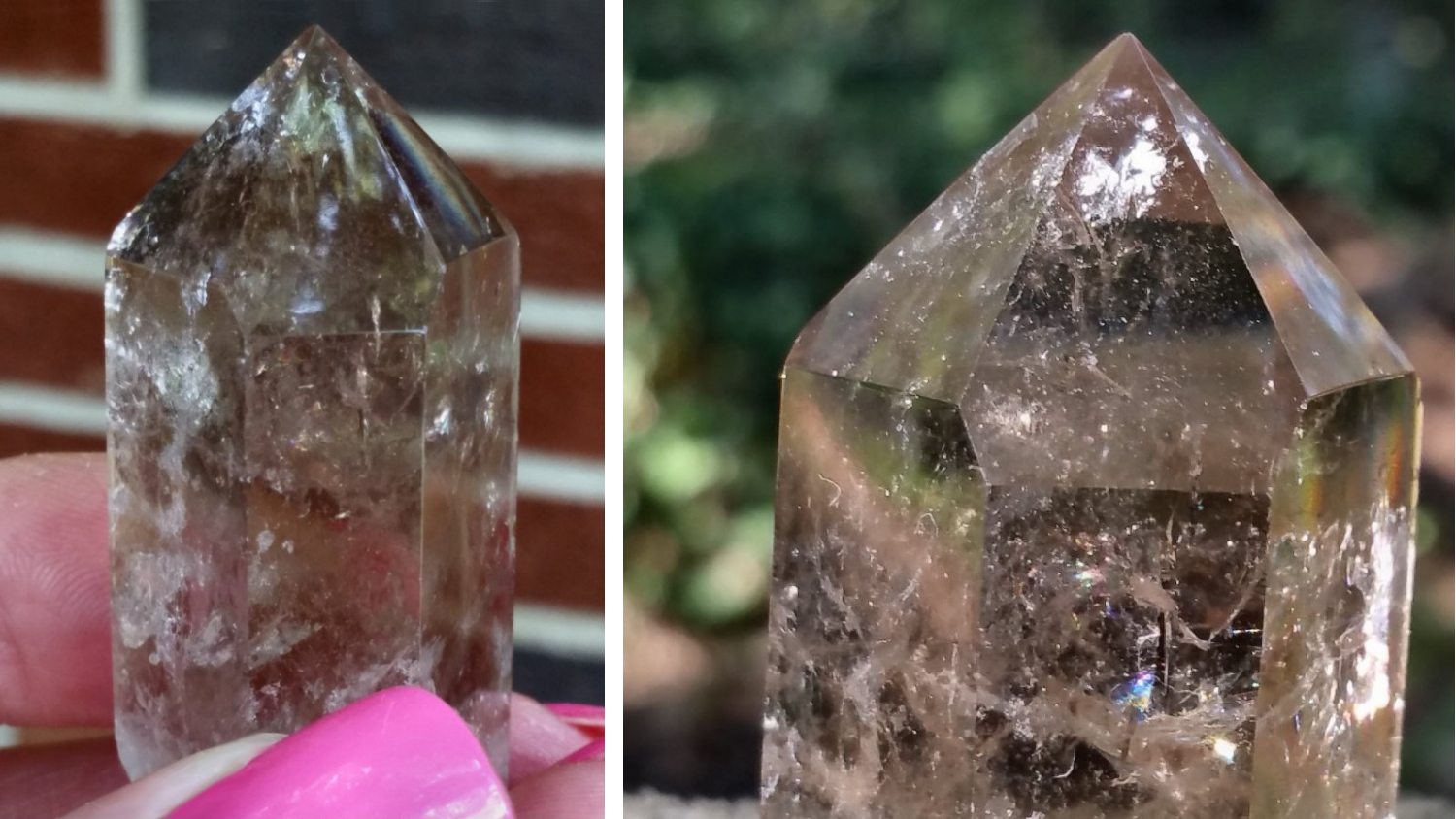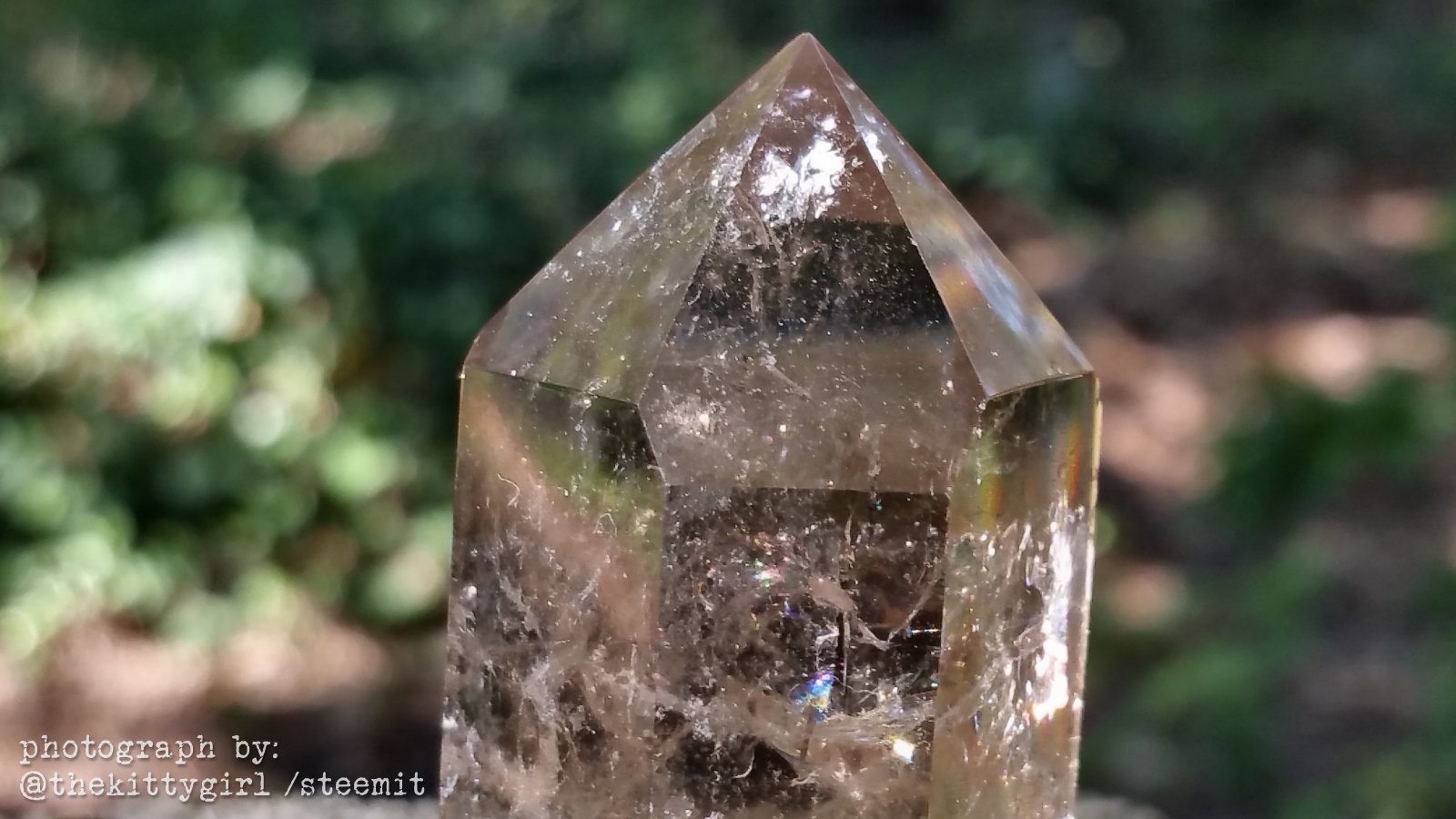Quartz is made of silicon dioxide. When white or clear quartz is exposed to radiation — either naturally in the earth, or artificially in a laboratory — some of the silicon dioxide molecules can be disrupted, freeing some of the silicon to stand alone. This makes the quartz take on a grayish or brownish "smoky" color. If the radiated quartz was opaque prior to being irradiated, it will remain opaque. If the radiated quartz was previously translucent, it will remain translucent.
This beautiful little crystal is one of my favorite smoky quartz specimens. The white matrix to which it is attached is calcite, another mineral. I love the contrast between the beautiful smoky quartz and the white calcite!

photo by me
As another example of smoky quartz, here is another crystal in my collection of minerals:

photos by me
This crystal is actually a CLEAR smoky quartz — the "stuff" that is visible inside the crystal could be air, water, gas, or bits of silicon dioxide that didn't bond to the structure of the crystal. These are referred to as "inclusions" and add an extra layer of fascination when looking at the crystal. In some crystals, the inclusions take the appearance of wispy "veils" and flat "planes" which can diffuse or reflect light in remarkable ways. I will be sharing photos of other crystals in the future with those types of inclusions.

photo by me
SOURCES
1 Wikipedia: Crystals
2 Wikipedia: Smoky Quartz







